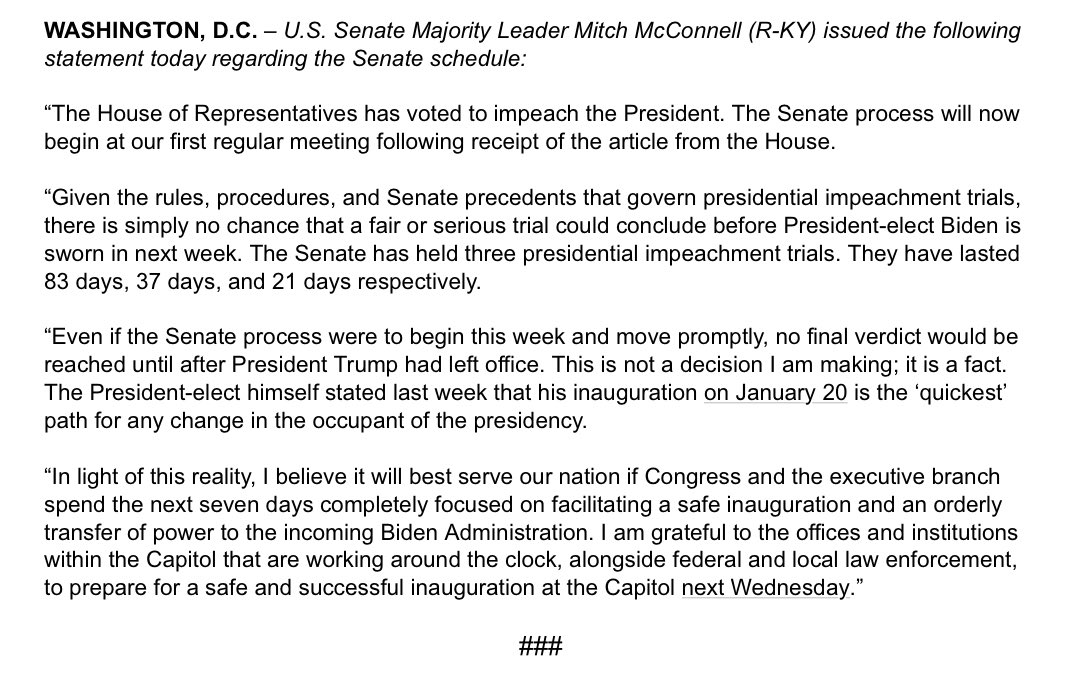News
Donald Trump Impeached for a Second Time by House of Representatives | Here’s All You Need to Know

For the second time in less than 13 months, President Donald Trump has been impeached by the House of Representatives for “incitement of insurrection” with the recent riot at the Capitol. This makes him the first president in U.S. history to be impeached twice.
He was first impeached by the Democratic-led House of Representatives in December 2019 over his dealings with Ukraine, this time, the House voted 232-197 in favour of his second impeachment, with 10 Republicans joining Democrats in voting to impeach Trump.
Following the House vote, Senate Majority Leader Mitch McConnell said that Trump’s trial could not begin in earnest until he leaves office on January 20, the week President-elect, Joe Biden gets inaugurated.
“Given the rules, procedures, and Senate precedents that govern presidential impeachment trials, there is simply no chance that a fair or serious trial could conclude before President-elect Biden is sworn in next week,” McConnell said. “In light of this reality, I believe it will best serve our nation if Congress and the executive branch spend the next seven days completely focused on facilitating a safe inauguration and an orderly transfer of power to the incoming Biden administration.”
My full statement on the next seven days and the Senate schedule: pic.twitter.com/Nh5z3f79yq
— Leader McConnell (@senatemajldr) January 13, 2021

Here’s what is expected to happen next: Now that the vote has been concluded, the impeachment proceedings will be moved to the Senate. The Senate will then decide whether or not to convict Trump. According to the New York Times, “There is no precedent for the Senate holding an impeachment trial after a president has left office, but it has done so for other government officials”. Would impeachment disqualify him from holding office? The New York Times writes:
Conviction in an impeachment trial would not automatically disqualify Trump from future public office. But if the Senate were to convict him, the Constitution allows a subsequent vote to bar an official from holding “any office of honor, trust or profit under the United States.” That vote would require only a simple majority of senators.

















